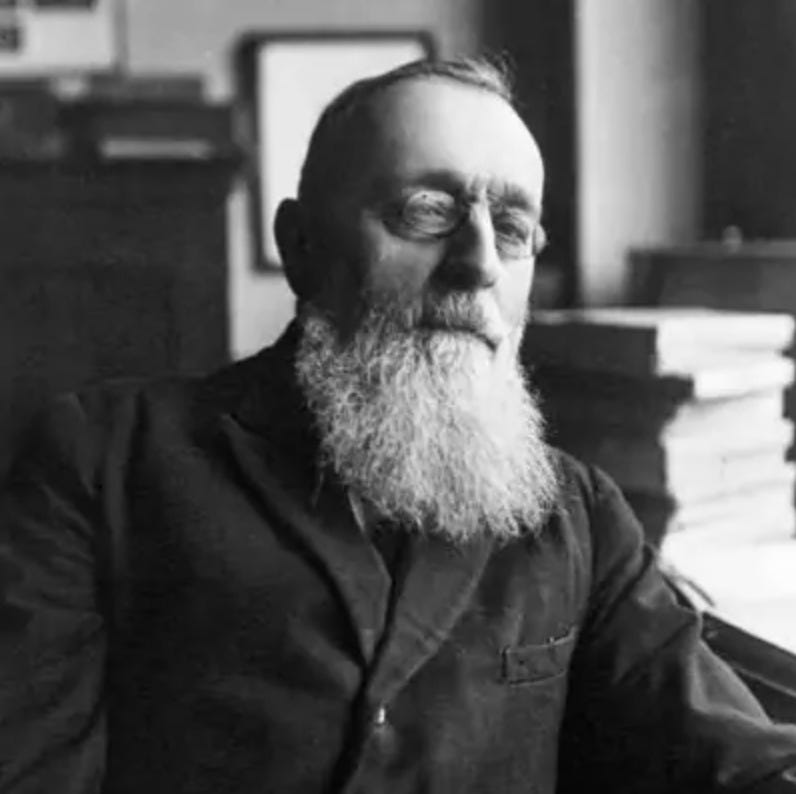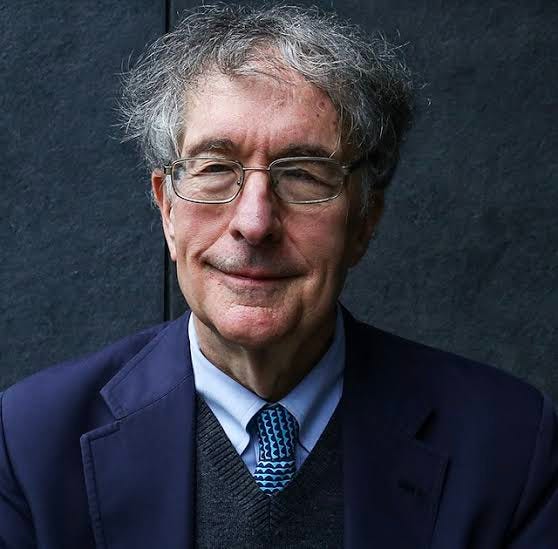Intelligence: You Either Have It, Or You Don’t
On a concept that causes more problems than it solves
Intelligence, whatever way we wish to discuss it, is a highly-regarded faculty. According to Etymology Online, we derive the word from the Latin intelligentia, “understanding, knowledge, power of discerning; art, skill, taste”. It has its origins in the Proto-Indo-European root leg, meaning “to collect” or “gather”. And so it seems, to be intelligent is to possess the capacity to gather, interpret, and employ useful information from the world around us. But all language is problematic, and words have a tendency to grow legs and develop new meanings. The word Intelligence is no different.
Today, researchers consider the term intelligence to be too broad to be helpful in understanding human behaviour and personality. We have learned so much about ourselves in the last one hundred years. The word simply does not allow us to discuss the depth and breadth of human abilities–or indeed their growth and development–in any meaningful way. But that doesn’t stop people on the street from using it or any of its synonyms to pigeonhole other people. Notwithstanding this, intelligence is only about the individual; what goes on inside this bag of skin. Another significant error in judgment.
How we employ words like smart, clever, intelligent, sharp, brainy, and so on, suggests that we possess something rare. And to possess it, is to be part of a sacred and blessed group. These unique individuals have something that we and others don’t necessarily have, and to become as they are is an impossible feat. “You either have it or you don’t”, and other such myths prevail in popular commentary. There are exceptions, of course. People who apparently come from nowhere to reach the pinnacle of their fields. And when they show themselves, we usually assign their achievements to chance or luck. Their achievements represent an anomaly.
Alfred Binet
The French psychologist, Alfred Binet and his assistant Théodore Simon created the first practical IQ test, the Binet–Simon test.1 In 1904, the French Ministry of Education requested Binet to devise an assessment method that would determine which students needed additional learning support. Binet and Simon published revisions of the test in 1908 and 1911, the last of which appeared just before Binet’s death. The Binet-Simon IQ Test was subsequently reformulated by numerous researchers, including Lewis Termin (Stanford-Binet Test)2, and later by David Weschler (Weschler Intelligence Scales)3, which are still widely used today.
“A few modern philosophers assert that an individual’s intelligence is a fixed quantity, a quantity which cannot be increased. We must protest and react against this brutal pessimism…. With practice, training, and above all, method, we manage to increase our attention, our memory, our judgment and literally to become more intelligent than we were before.”
– Alfred Binet
Binet was somewhat unique for his time, in that he believed that humans could grow and develop the intellect. In contemporary terms, Binet was an advocate for the idea of Growth Mindset4 popularised by Carol Dweck. Given the right environment and support, intelligence, ability, aptitude, skill, whatever we wish to describe it as could expand beyond our current capacities. However, the scientific community did not broadly accept this idea. Dominant voices of the time, such as the prolific Francis Galton, asserted that intelligence was fixed and inherited. Intelligence, according to this Euro-centric colonial view, was the reserve of white-skinned males, and to a lesser extent, females. If you weren’t from the right family or of the right skin colour, you were of the lower orders. As such, you were to be, at the very least, tolerated. At the extreme, you were to be eliminated.
Eugenics
Eugenics is the scientifically inaccurate theory that we can improve the human race through selective breeding of populations. Eugenicists believed in a prejudiced and incorrect understanding of Mendelian genetics. They claimed that we inherit human qualities (e.g., intelligence and social behaviours). Similarly, they believed complex diseases and disorders were solely the outcome of genetic inheritance. Eugenics is not a fringe movement. Its practices have caused widespread harm to minorities over the past one hundred years. Starting in the late 1800s, leaders and intellectuals perpetuated eugenic beliefs and policies based on common racist and xenophobic attitudes. Many of these beliefs and policies still exist in the United States. (From the National Genome Research Institute)
The End of The Dark Ages of Intelligence Theory
These ideas of human intelligence informed government policy globally. They legitimised the abhorrent practices of forced sterilisation, selective breeding, and racial and ethnic discrimination. But all this came to a sudden (although not complete) end in the early 1980s and the work of researcher James Flynn5. Flynn is a moral philosopher, and in his examination of racial discrimination, he became interested in Intelligence. IQ was supposed to be a stable trait. But Flynn noted that average scores have been rising across the world since the early 20th century.
If we measured the average intelligence of 1920s society in IQ terms by today’s averages, those people would be considered cognitively deficient. If we measured today’s society by 1920s standards, we would be genius level. So what’s the story here?
The bottom line of Flynn’s research is that environmental factors play a crucial role in IQ scores. He argued that improvements in education, nutrition, and living conditions contributed to generational gains in cognitive abilities. It really is a case of a rising tide raising all boats. No longer was ethnicity, skin colour, gender, or social status sufficient to discriminate against others. Some researchers argue that IQ gains may be reaching a plateau in certain regions. There is ongoing exploration of the specific cognitive abilities affected by the trend.
Howard Gardner’s Theory of Multiple Intelligences
Gardner’s theory of multiple intelligences is a psychological and educational theory that challenges the traditional view of intelligence. Intelligence as a unitary concept measured by IQ score does not reflect the reality of life and the broadness of the intellect. Gardner proposed that people possess multiple intelligences, each representing different ways of processing information and solving problems. His Theory of Multiple Intelligences has had a significant impact on education and has broadened our understanding of human abilities. Gardner initially identified seven intelligences, and later added an eighth. The intelligences are:
Linguistic Intelligence: This involves sensitivity to spoken and written language, as well as the ability to learn languages.
Logical-Mathematical Intelligence pertains to the capacity for logical reasoning and mathematical problem-solving.
Spatial Intelligence: Involves the ability to perceive the visual-spatial world accurately and to perform transformations on those perceptions.
Musical Intelligence: This is related to the ability to understand, create, and appreciate musical forms.
Bodily-Kinesthetic Intelligence: Involves the skilful use of one’s body, including activities that require physical coordination and control.
Interpersonal Intelligence: Concerns the ability to understand and interact effectively with others.
Intrapersonal Intelligence: Refers to self-awareness and the ability to understand one’s own emotions, motivations, and goals.
Naturalist Intelligence: Added later, this involves recognising and categorising natural objects and phenomena.
It’s important to note that Gardner’s theory doesn’t imply that individuals possess only one type of intelligence. Instead, people typically have a combination of intelligences, with varying degrees of strength in each.
Criticisms of Gardner's Theory
Gardner’s Theory of Multiple Intelligences has not been without its critics. Some argue that his “intelligences” might be better viewed as talents or skills rather than separate forms of intelligence. He’s also been criticised on the basis of cultural bias, lack of empirical support, and limited evolutionary basis. Regardless, the theory has had a lasting impact on educational philosophy. It has also contributed to a more holistic approach to understanding and nurturing human potential.
Final Remarks
The study of individual differences has revealed a lot about the human condition. Decades of research papers on mindset, attitudes, beliefs, behaviour, performance and many other fields have shown us that with effort and process, human beings can change their lives for the better. In spite of this, we persist with the idea that our “intelligence”, ability, and skill are set in stone. We have been given our lot, our bag of tricks, and that’s all we’re getting. Remarkably, others seem to know more about these abilities than we do. Forget about following your curiosity and interest, because the effort required is simply too great, and you'll never make a living at it. Best to settle into a run-of-the-mill job, keep it steady, and do enough to get by…if you’re lucky. Superior intelligence, ability, skill, and talent are the preserve of the few.
I see it in amateur sports in particular; coaches making calls about kids' ability or apparent lack thereof based on what they see now. They make little or no account of the developmental process and the impact of their judgments. Often, it is the intrinsic bias of the coach coupled with their own personal ambition that informs the judgment. In that sense, good coaches are rarer than the talent they are apparently looking for. If only they knew that it is more likely their shortened talent horizon that is the problem. Many coaches and teachers do not afford kids the time and space they need to grow. Is it any wonder that so many don't “make it”?
There is a vast constellation of factors at work in the growth and development of any given person. But one thing is sure, ordinary people can achieve extraordinary things given the right conditions. Genes and environment interact for better or worse6. “Intelligence” can grow. Thoughts, feelings and emotions influence our behaviour, and we can make our lives better. Life is not without difficulty, but if we hold on to that thought alone, the door is open for positive change.
References
Binet, A., & Simon, T. (1948). The development of the Binet-Simon Scale, 1905-1908. ↩︎
Terman, L. M., & Merrill, M. A. (1960). Stanford-Binet intelligence scale: Manual for the third revision, form lM. ↩︎
Wechsler, D., & Kodama, H. (1949). Wechsler intelligence scale for children (Vol. 1). New York: Psychological Corporation. ↩︎
Claro, S., Paunesku, D., & Dweck, C. S. (2016). Growth mindset tempers the effects of poverty on academic achievement. Proceedings of the National Academy of Sciences, 113(31), 8664-8668. ↩︎
Flynn, J. R. (2013). The “Flynn effect” and Flynn’s paradox. Intelligence, 41(6), 851-857. ↩︎
Scarr, S., & McCartney, K. (1983). How people make their own environments: A theory of genotype→ environment effects. Child development, 424-435. ↩︎






